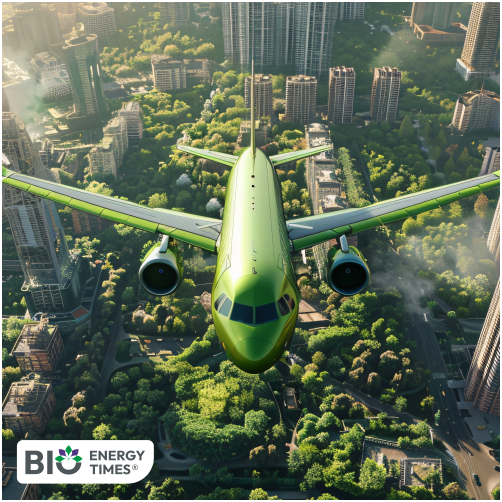The Association of Asia Pacific Airlines (AAPA) has described Singapore’s upcoming sustainable aviation fuel (SAF) levy as an important push to encourage greater production and use of cleaner fuels in aviation, reports New Straits Times.
AAPA director general Subhas Menon said the levy is designed to motivate action, noting that travellers often express support for sustainability but do not always follow through.
He said many passengers claim they are willing to contribute to sustainability efforts, including supporting SAF, but often “words and actions do not match,” and the levy acts as the needed reminder.
According to him, most travellers are unlikely to object to paying between S$1 and S$41—depending on destination and travel class—because the money supports a meaningful cause.
The Civil Aviation Authority of Singapore announced on November 10 that the SAF levy will apply to tickets sold from April 1, 2026, for flights departing Singapore from October 1, 2026. Charges will vary by distance and cabin class.
Subhas said Singapore has also assured the public that their contributions will be used properly. The levy will go directly toward the purchase of SAF, managed by the newly established Singapore Sustainable Aviation Fuel Co Ltd. (SAFCo), which will handle procurement on behalf of the country.
He described Singapore’s model as a combination of firm government commitment and public willingness to support sustainability.
While the levy has drawn widespread attention, Subhas said it is unlikely that other Asia-Pacific countries will adopt a similar approach, as each government has different needs and policy structures.
“There is no one-size-fits-all,” he said, noting that countries are taking different pathways to increase SAF use.
Japan, for instance, is pursuing a public–private partnership model supported by its large supply of used cooking oil, creating new income opportunities for communities involved in collecting and processing it.
Malaysia, he added, has also laid out long-term plans to build domestic SAF production capacity, targeting significant output by 2050.
Subhas said most Asia-Pacific countries already have policies and regulations in place to expand SAF use, with the region now showing much faster progress than two years ago. He said these efforts are expected to lead to at least five percent SAF usage across the region.
Beyond sustainability, Subhas urged governments to take a more active role in strengthening the region’s aviation supply chain. He said airlines have repeatedly been called upon to push the sector forward, but governments also need to recognise aviation as a long-term economic opportunity worthy of investment.
He said governments can help local companies become regional suppliers of aircraft components—similar to efforts underway in China—and support investments in maintenance, repair and overhaul (MRO) facilities and the broader aviation aftermarket.
On rising concerns over passengers carrying lithium-ion batteries, Subhas said airlines face challenges because different countries follow different rules, causing confusion among travellers.
He noted that some airlines believe no action is needed, while others want clearer guidelines. However, he stressed that regulators—not airlines—should issue the necessary rules.
He added that if regulators do not act, the association is willing to propose recommendations based on established safety procedures.














